It certainly wasn’t an auspicious start. I arrived at the project and everyone stared at me as if I was a 3 headed dwarf. They hadn’t been expecting me. How odd considering all the emails, texts and phone calls I had sent to Predo, one of the project leaders.
This immediately played on my insecurities. I’d already spent 2 days prevaricating about going to the project. Not an unusual activity for me. For the last 4 years even with 20 workaways under my belt each new meeting makes me want to run for the hills. The ‘’fight or flight” syndrome I guess. I should be used to it by now; the unfamiliar, new people, a new ‘home’, a new regime but alas not. It’s the fear of the unknown and each time I have to ignore that insistent voice in my head telling me not to bother and force myself forward.
Where am I?
I’m at Bakau Hijau (Green Mangroves) a project situated on the river Merbok about 17km from Sungai Petani in Northern Malaysia. The purpose of the project is to demonstrate to the local community how a tourism business can be run in a manner which is environmentally friendly and sustainable.
There are several aspects to the Project:
- the oyster farm
- replanting of the mangrove forests, which are subject to deforestation because the trees are used for firewood, construction, and charcoal production. Mangrove forests are one of the world’s most threatened tropical ecosystems with 35% already gone.
- Tourism: there are River cruises, and accommodation available in the house boat
- finally there’s education.
How do I come to be here?
I don’t know if you remember Fran? He was the motorcycling Spanish guy I met on a workaway in India around this time last year. He had some ‘must-see’ recommendations as well as 2 ‘unmissable’ workaway projects, the Mindfulness Project in Khon Kaen and this one. Actually technically not here but on Palau Bidan island, the sister project, where the project community work off grid, are self-sufficient and protect and nurture the Island’s nature and ecosystems. Due to time constraints I won’t be seeing Palau Bidan this time but it’s on my bucket list as I may well cycle through Malaysia in 2020.
How to volunteer.
I’ve been using workaway.info for the last 4 years but there are similar sites such as HelpX.net and WWOOF.net. All charge a membership fee but have thousands of hosts all over the world. Most expect 5 hours of work a day for 5 days and then allow 2 days off. The pay-off is free food and accommodation. In less developed countries a contribution may be required but usually it’s no more than $5 a day. I’m paying here as I did in Nepal and at the Mindfulness Project in Thailand. Here the contribution is 20 Ringgit per day (£3.70). Of course there are charitable and animal/environmental conservation projects also available in most countries but often they charge a considerable fee. Jane, the Canadian nurse from my last Solarblue sailing post, did plan to assist a charity in Nepal but she was expected to pay $800 for 2 weeks of work.
A working day
Usually a working day and what’s required is clearly outlined by the host. I love this. Structure! It’s not that I have OCD (do I?) but after 22 years in the Army I’m used to structure. What am I supposed to achieve, how best can it be achieved and how long have I got to achieve it. Some hosts are very particular about exactly how the job should be done (just anal retentive really) but also this is their turf and they’ve done the job a thousand times, so they are the SME (Subject Matter Expert) and you’re a fool if you ignore this advice because in all probability the job will be a 100 times harder and you’ll alienate your host.
Unfortunately Bakau Hijau was nothing like this. There was a list of jobs written on the blackboard. Sweeping and cleaning, washing up and watering the plants but it only amounted to about 30 minutes of work. Initially Julia and Myer, 2 experienced volunteers, were there to guide the way. Unfortunately they left for a festival after 1 day and I was left with 2 Malay interns, Balie and Fikri, Maksu and her family and various other Malay visitors / contractors. I was joined by a new German volunteer, Lily, and her 2 kids on my second day but she didn’t seem keen to do any work. So she didn’t. Perhaps it’s the Malay way or perhaps they are used to the Lily’s of the world but initially they would never ask me to do a job. Instead I had to catch them working and offer to help, or guess what might be required. As the week progressed they grew less reticent and asked if I wanted to help but even then there were significant barriers to overcome. It might be too hot to work, too early in the day, too late in the day, lunchtime, breakfast time or any other reasons why work couldn’t progress. Once work did start it was anything but plain sailing. Tools, equipment and know-how were in such short supply that tasks couldn’t be finished or took an inordinate amount of time to complete. Balie and Fikri were my compadres, my partners in crime. Two young Malay interns here for 5 months. Oddly they’re both Marketing students and I was at a loss to see the connection between marketing and their work at the project.
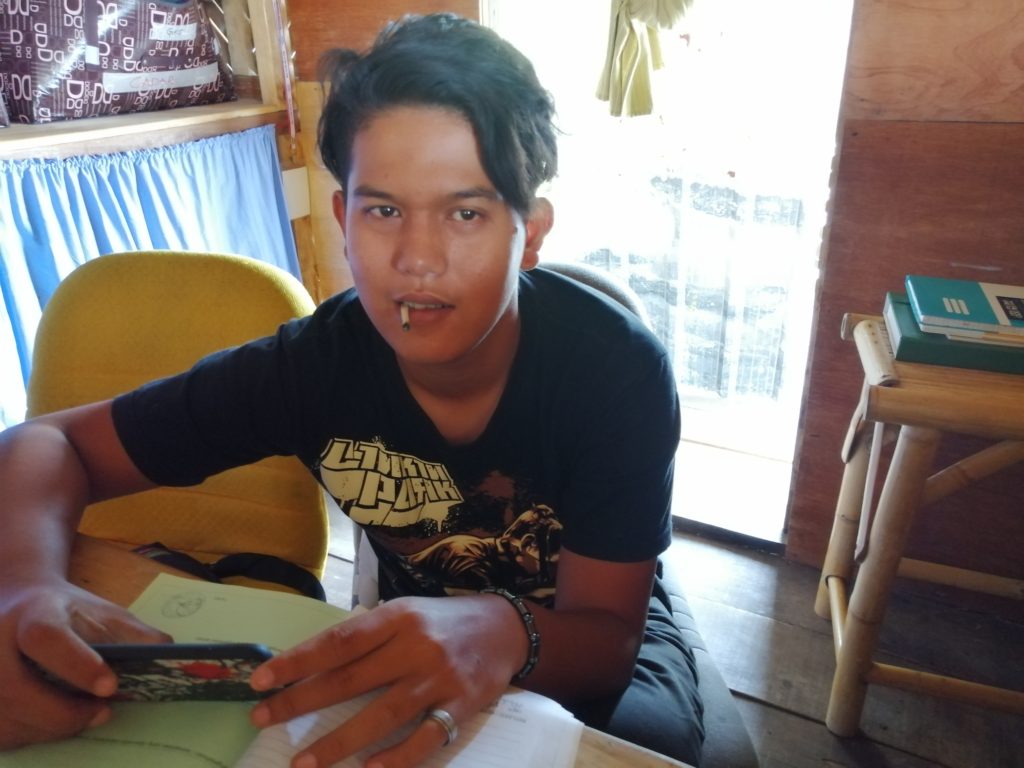
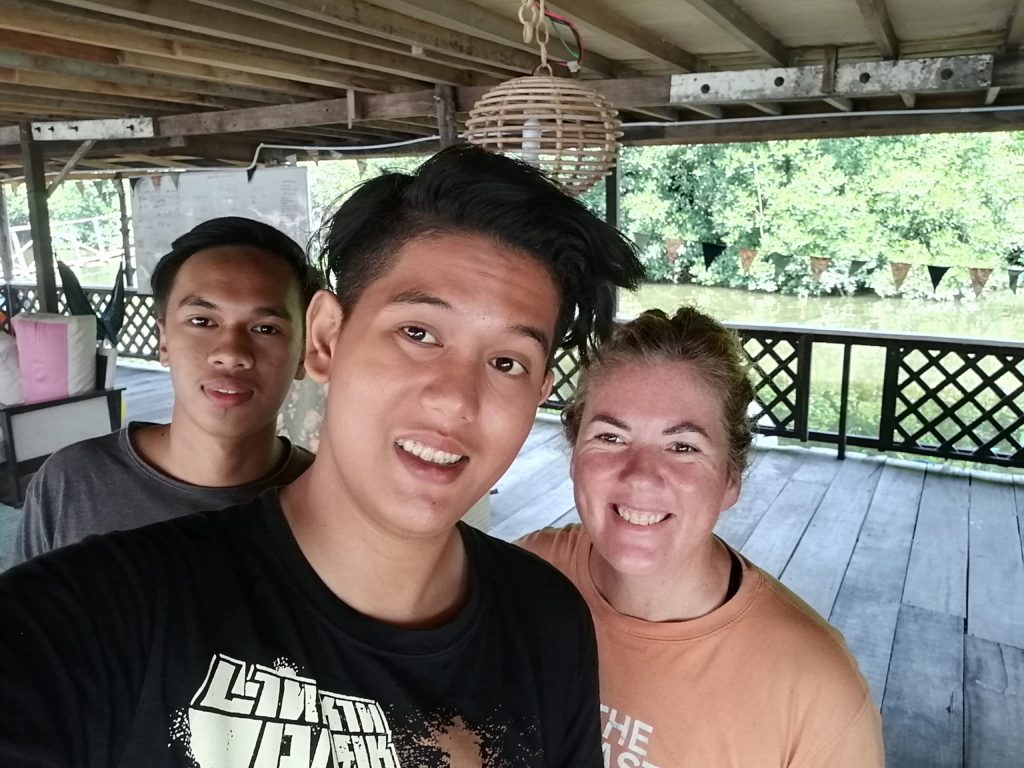
There were occasions when watching them work was hilarious but more often it was just frustrating. They were told what to do but not given any guidance on how to do it and without tools it was impossible to finish some tasks whilst others were just one huge bodge job. I thought my DIY skills were limited but compared to these young lads I looked pretty knowledgeable but without tools we still struggled with most jobs. We had no drill, no screws, only a few nails, a watering hose that don’t reach the mangrove nursery and a watering can with a hole in the bottom.
Oysters
The oysters need to be cleaned periodically with a scraper to remove the barnacles. These oysters are in the baskets for over a year before they’re large enough to eat so scraping them
allows continued healthy grow but also ensures that the barnacle growth isn’t so extensive that it’s impossible to shuck the oyster. It’s also an opportunity to put them back in clean baskets. If the oysters are being sold they are scraped and scrubbed clean before they’re shucked. Customers are charged 5 Ringgit per oyster, about £1.00. The project has a lab where baby oysters are made. One morning Matzu tipped out 12 baskets, about 120 oysters and then Balie, Julia and I sat there for about 4 hours scraping them clean of barnacles before returning them to the river in clean baskets. We had several visitors come up the river by boat and stopped by to taste our oysters.
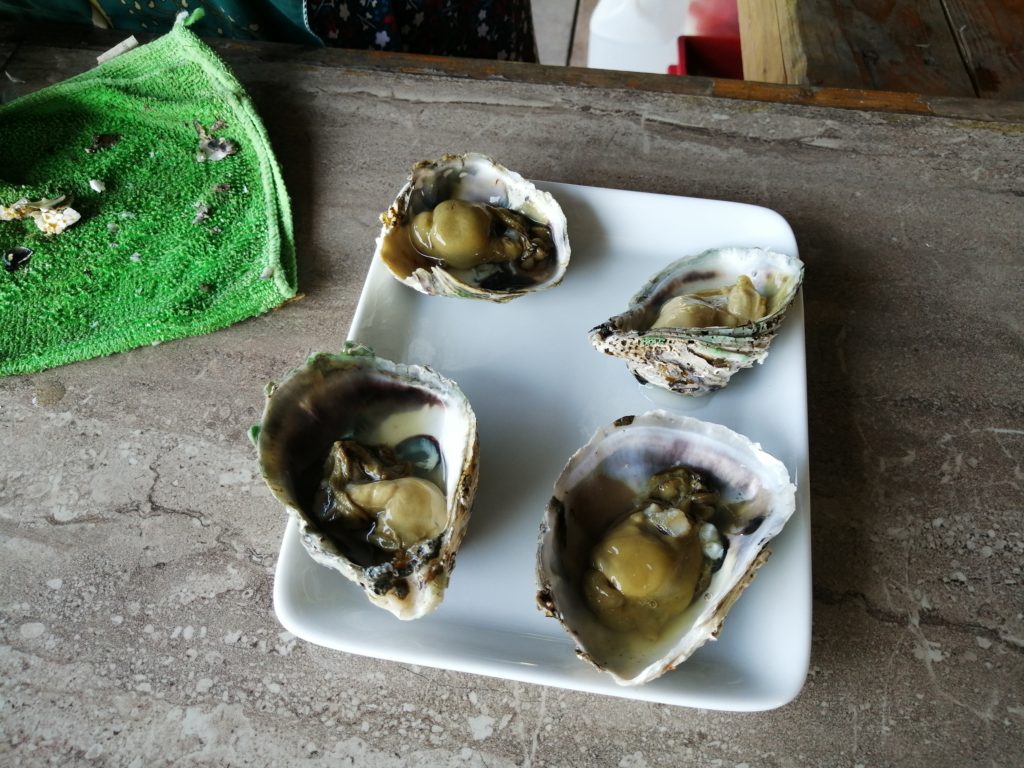
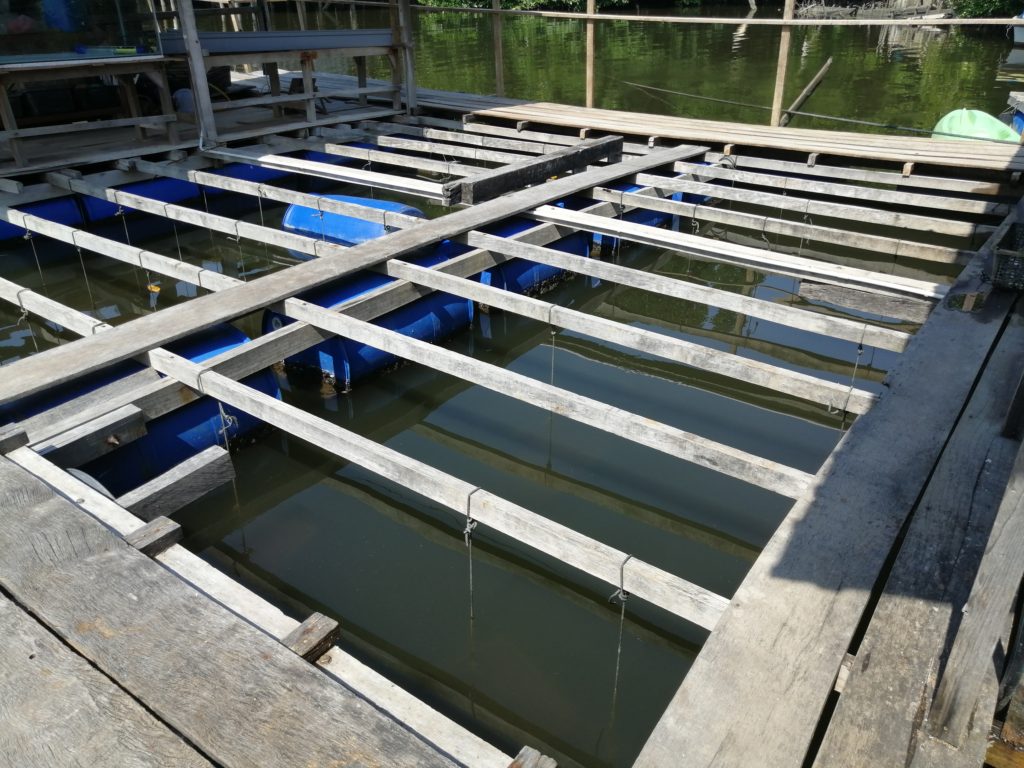
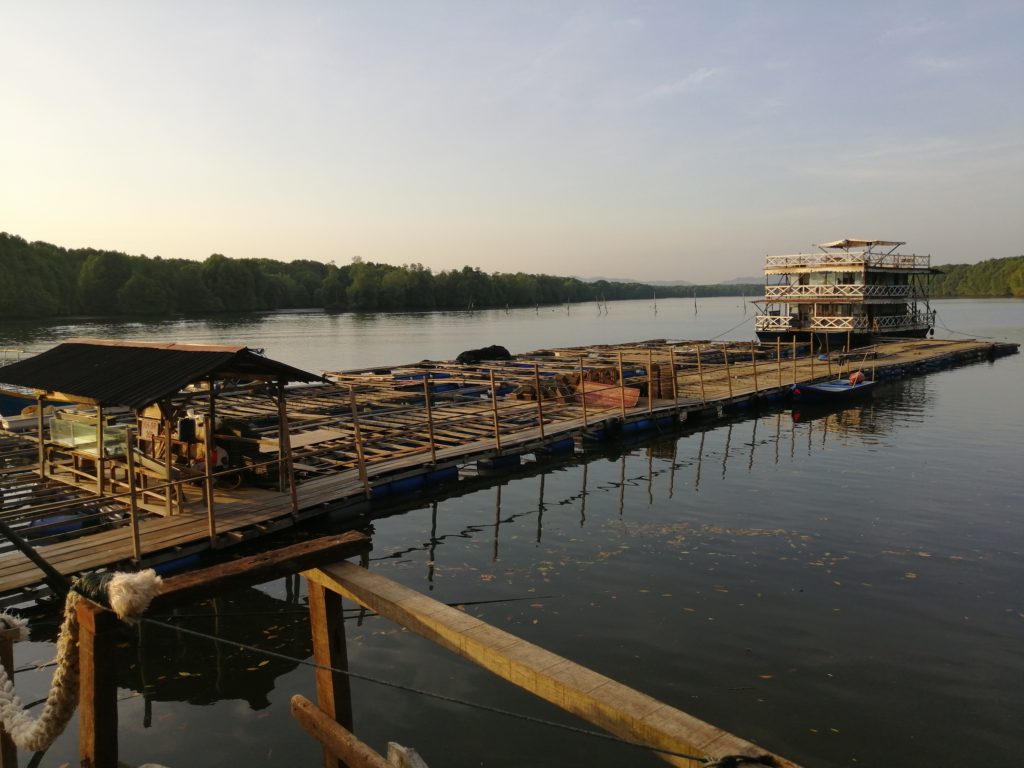
Mangrove seeds
I was very excited by the idea of replanting mangrove forests but sadly during my short stay there wasn’t the opportunity. Instead I became a very dedicated collector of mangrove seeds. Unfortunately no-one gave me specific guidance on how to maximise seed collection. These seeds fall from the mangrove trees and so it’s just a case of picking them up. But at high tide there’s water everywhere and at low tide it’s all horrible sucking, stinky mud. I tried walking along the river bank at high tide, low tide and various levels in-between and kayaking at high and low tide.
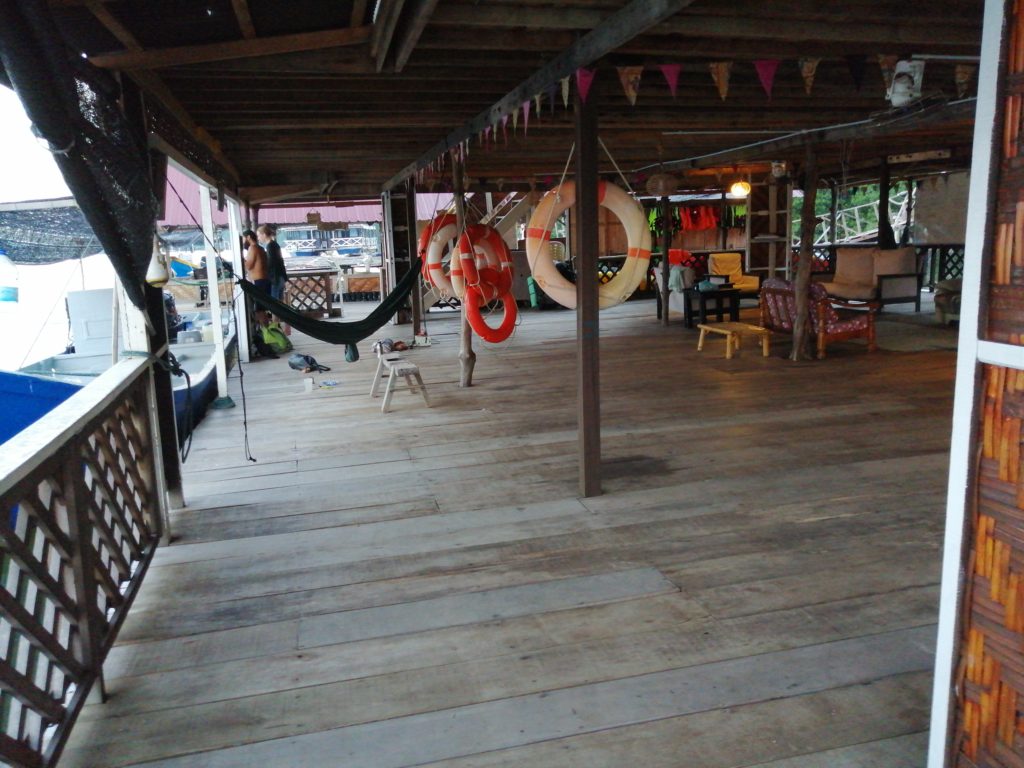
Over my brief stay I did collect and pot over 200 seeds but these seeds need to be potted and nurtured until they have have rooted and produced new green shoots. Unfortunately the mangrove nursery had been neglected and was probably suffering from insufficient watering so we threw away about 200 seeds which had died. Very depressing.
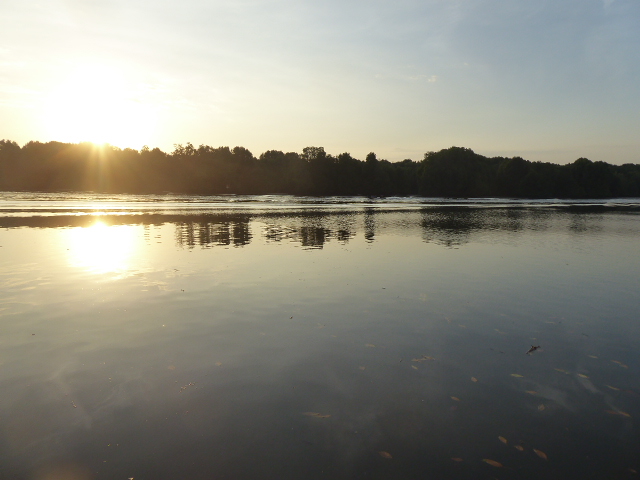
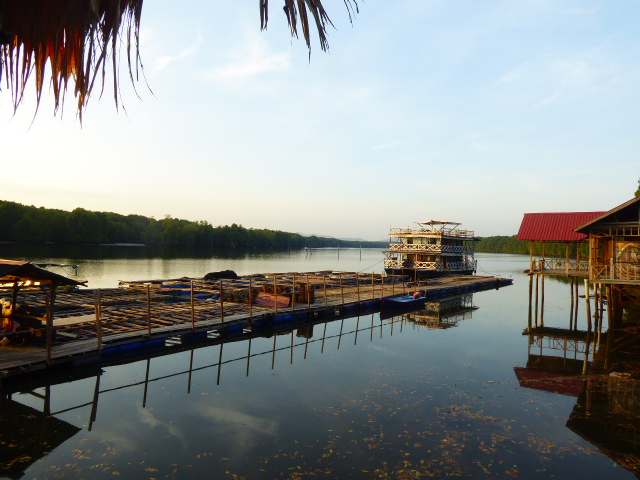
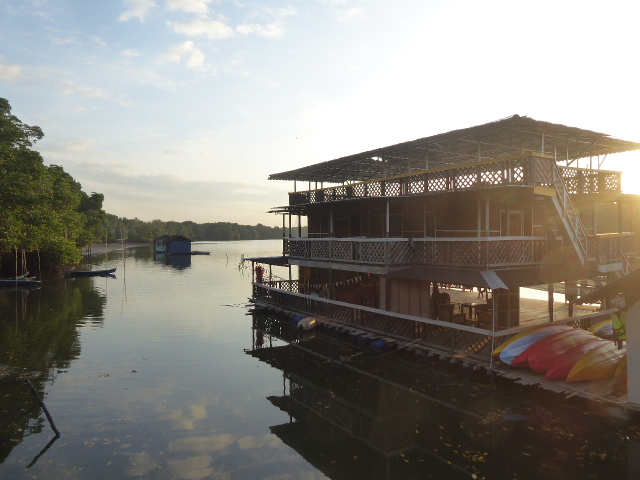
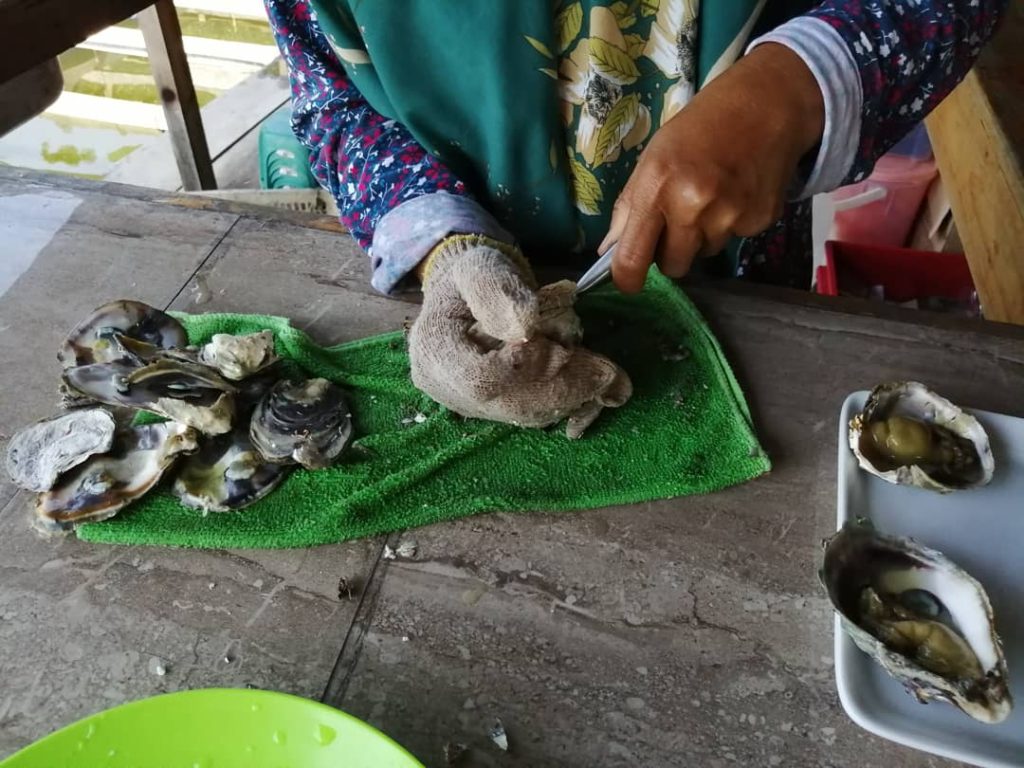
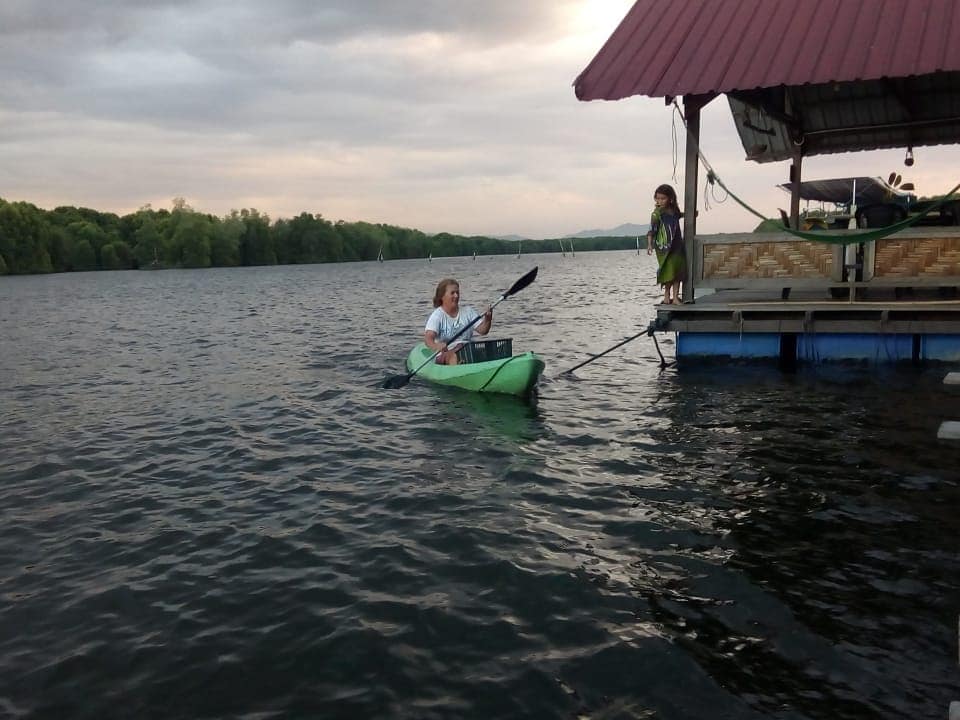
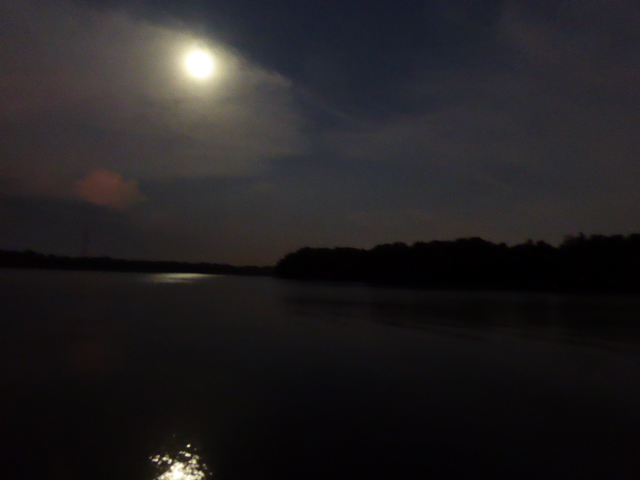
One reply on “Why volunteer? It can be a truly unforgettable experience (possibly for the wrong reasons)”
Great update Huelwen. Hoping it gets a little more organised for your OCD’s sake x x